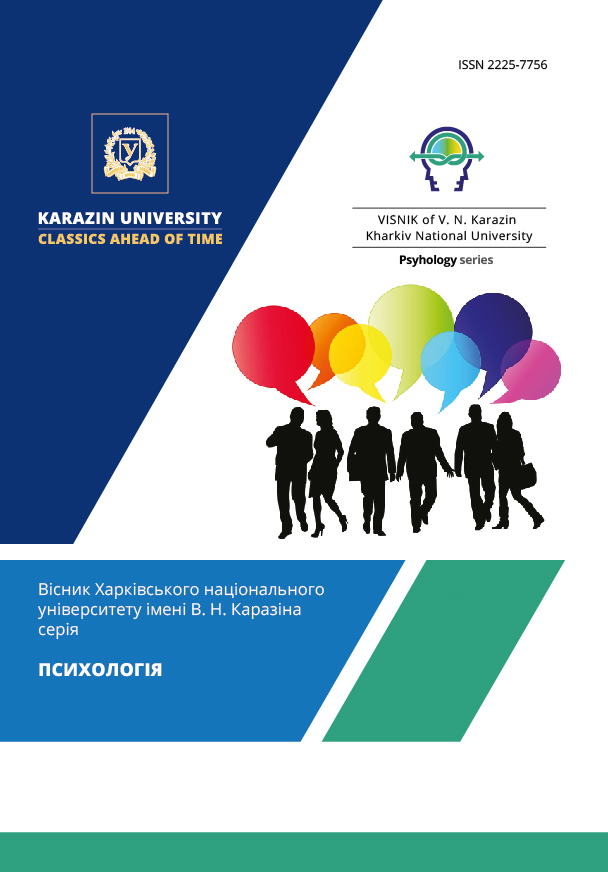Відображення колективної пам’яті в музеї
Анотація
Музеї є одним із засобів, у яких спільноти відображають свою колективну пам’ять. Експозиції музеїв встановлюють певні рамки, які наповнюються різним контентом і дають можливість створити різні наративи. Музеї відіграють активну і майже непомітну роль в створенні пам’яті. Але музеї не тільки конструюють пам’ять, ця пам’ять має бути сприйнята і присвоєна відвідувачами. Першим кроком у цьому процесі є безпосередня реакція на експозицію музею, яка відображається в записах відвідувачів в книжках коментарів, які вони роблять за власним бажанням. Ми припустили, що емоційні реакції відвідувачів, інформація, одержана в музеї, буде впливати на розвиток або зміну пам’яті відвідувачів. Матеріалом для аналізу були коментарі відвідувачів, зібрані в різні роки в Меморіальному музею Голокосту Сполучених Штатів Америки. Переважна більшість коментарів була залишена американцями, були також коментарі від громадян інших країн. Методом аналізу коментарів був обраний аналіз дискурсу, в якому були використані підходи Дж. Джи, а також критичний дискурс аналіз ван Дийка і Р. Водак. На підставі проведеного аналізу були одержано наступне. Було виділено декілька дискурсів, найбільш часто вживаних були емоційний, спрямований на майбутнє і дію, песимістичний і космополітичний. Була виявлена різниця між коментарями відвідувачів, залишених ними в різні роки: підвищилась кількість коментарів у критичному, космополітичному і життєстверджуючому дискурсах, що може бути пов’язано зі впливом терористичного акту 11 вересня 2001 року. Відрізнялись також коментарі відвідувачів різних вікових груп. Підлітки і діти більш безпосередньо висловлювали свої емоції у порівнянні з дорослими, які показали глибше розуміння подій і їх наслідків. Було виокремлено декілька різних груп відвідувачів. Ті, хто вижили, і члени їх родин виявили
травматичні почуття, афро-американці проводили паралель і ідентифікували себе з євреями, німці відчували сором і жаль і т. ін. Так, музей стимулює рефлексії про Голокост, власну ідентичність і слугує основою для подальшого розвитку колективної пам’яті про Голокост.
Завантаження
Посилання
Apfel R.J. & Simon B. (1996). Minefields in their hearts: The mental health of children in war and communal violence. New Haven, CT: Yale University Press.
Bar-On D. (1995). Fear and hope: Three generations of the Holocaust. Cambridge, MA: Harvard University Press.
Black G. (2011). Museums, Memory and History. Cultural and Social history. 8(3), 415-427. DOI: 10.2752/147800411X13026260433275
Blakkisrud H. & Kuziev F. (2019). Museums, memory and meaning creation: (re)constructing the Tajik nation. Nations and Nationalism. 25 (3), 997-1017. DOI: https://doi.org/10.1111/nana.12519
Bozoglu G. (2019). Museums, Emotion, and Memory Culture: The Politics of the Past in Turkey. London and New York: Routledge.
Gee J. P. (2014). An introduction to discourse analysis. London and New York: Routledge.
Levy D. & Sznaider N. (2002). Memory Unbound. The Holocaust and the Formation of Cosmopolitan Memory. European Journal of Social Theory. 5(1), 87-106. DOI: https://doi.org/10.1177/1368431002005001002
Lloyd C. (2015). Memories of Slavery: Museums, Monuments, Novels in C. Lloyd (Ed.). Rooting memory, rooting place, pp 19-51. New York: Palgrave Macmillan. DOI: https://doi.org/10.1057/9781137499882
Reisigl M. & Wodak R. (2001). Discourse and Discrimination. Rhetorics of Racism and Antisemitism. London and New York: Routledge. DOI: https://doi.org/10.4324/9780203993712
Robinson H. (2012). Remembering things differently: museums, libraries and archives as memory institutions and the implications for convergence. Museum Management and Curatorship. 27(4), 413-429. DOI: https://doi.org/10.1080/09647775.2012.720188
Sodaro A. (2018). Exhibiting atrocity: Memorial Museums and the Politics of Past Violence. New Jersey, and London: Rutgers University Press. DOI: 10.2307/j.ctt1v2xskk




